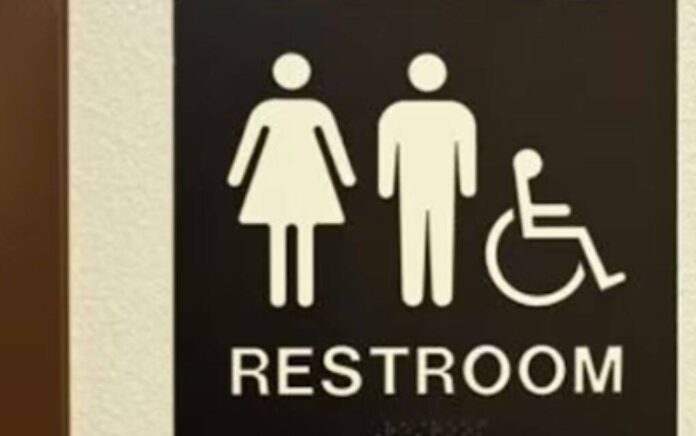
The U.S. Supreme Court has to be quick. They’ve been given no time to decide a major case.
Because U.S. Supreme Court Justices were handed a high-profile emergency filing.
South Carolina is taking a stand to protect student privacy and safety, urging the U.S. Supreme Court to uphold its policy barring transgender students in state-funded schools from using bathrooms that align with their gender identity rather than their biological s*x. In an emergency appeal filed Thursday, the state asked the justices to lift a lower-court injunction blocking enforcement of the bathroom policy, which took effect in July 2024. The policy requires the state Department of Education to withhold 25 percent of funding from school districts that violate it, ensuring compliance with a measure designed to safeguard students in vulnerable spaces.
The bathroom policy “is designed to protect the privacy and safety of all students in a space that has historically been recognized as intimate and vulnerable,” the state wrote in its appeal. This common-sense approach prioritizes the well-being of all students, maintaining clear boundaries in restrooms based on biological realities, not subjective identities.
The appeal comes after a challenge from a teenage transgender boy in the Berkeley County School District, who was suspended for using boys’ restrooms. His lawyers, backed by Public Justice’s Student’s Civil Rights Project, claim the policy violates Title IX, the federal law prohibiting s*x-based discrimination in education.
“South Carolina wants the Supreme Court to take the extraordinary remedy of intervening in an ongoing lower court appeal — all because the state wants to stop one ninth grader from using boys’ restrooms while that appeal proceeds,” said Alexandra Brodsky, litigation director for the group. She added, “This case does not present the sort of emergency that would justify such intervention.”
South Carolina Solicitor General Thomas Hydrick countered that the state’s policy aligns with recent Supreme Court precedent, particularly the June 2025 ruling in *U.S. v. Skrmetti*, which upheld Tennessee’s ban on gender-affirming care for minors in a 6-3 decision. Hydrick argued that the ruling gives states significant authority to enact policies discouraging transgender identification, including bathroom restrictions. He dismissed a prior 4th Circuit ruling in favor of transgender student Gavin Grimm as a “discredited outlier,” urging the Supreme Court to reject its reasoning.
Supreme Court’s Track Record on State Authority
The Supreme Court has increasingly affirmed states’ rights to address transgender-related issues based on biological s*x, prioritizing legislative authority over judicial overreach. In U.S. v. Skrmetti (2025), the Court ruled 6-3 that Tennessee’s ban on puberty blockers and hormone therapy for transgender minors did not violate the 14th Amendment’s equal protection clause. Chief Justice John Roberts, writing for the majority, emphasized that such policy decisions belong to “the people, their elected representatives, and the democratic process,” not unelected judges. This landmark decision empowered 25 states with similar restrictions to defend their laws against legal challenges.
Following Skrmetti, the Court took further action to reinforce state autonomy. On June 30, 2025, the justices vacated appellate rulings in Idaho, North Carolina, Oklahoma, and West Virginia that had favored transgender plaintiffs, ordering lower courts to reconsider in light of the Tennessee ruling. These cases involved issues like healthcare coverage for transgender individuals and gender markers on birth certificates, signaling a clear trend: states have substantial leeway to regulate transgender policies when rooted in rational bases like public safety or biological distinctions.
The Supreme Court has also sidestepped direct engagement with transgender bathroom disputes, allowing state and lower court decisions to stand. In 2017 and 2021, the Court declined to hear *Gloucester County School Board v. Grimm*, where the 4th Circuit ruled that a Virginia school’s bathroom policy violated a transgender student’s equal protection rights. By refusing to take the case, the Court left the 4th Circuit’s ruling intact but avoided setting a national precedent, effectively deferring to local governance.
A Growing National Movement
South Carolina’s policy is part of a wave of state actions—19 states have enacted similar restrictions on transgender access to facilities like bathrooms and locker rooms in schools or government buildings. These measures, like Tennessee’s, aim to preserve privacy and safety by maintaining s*x-based distinctions in intimate spaces. The Trump administration has bolstered this movement, reinterpreting Title IX to apply strictly to biological s*x, excluding transgender students from sports teams and facilities aligned with their gender identity. This federal stance aligns with South Carolina’s appeal, reinforcing the state’s argument that its policy is both constitutional and necessary.
Critics, like Brodsky, frame the issue as discriminatory, but supporters argue it’s about fairness and protecting students’ rights to privacy. South Carolina’s appeal is a part of a bigger fight against what many see as federal overreach and activist-driven policies that erode common-sense protections. With the Supreme Court’s recent rulings favoring state authority, South Carolina has a strong case to restore its policy and set a precedent for others.
As the nation watches, South Carolina’s stand could solidify the right of states to prioritize student safety over ideological demands. The Supreme Court’s next move will be crucial in shaping the future of this heated debate.



















